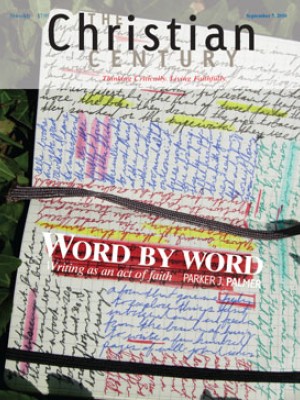Ruling overturning Prop 8 shaped for higher courts?
When U.S. District Judge Vaughn Walker struck down California's Proposition 8—the 2008 ballot initiative to outlaw gay marriage—he said the motivation for the majority of voters was clear.
"The evidence shows conclusively that moral and religious views form the only basis for a belief that same-sex couples are different from opposite-sex couples," Walker wrote in his sweeping, 136-page decision announced August 4 in San Francisco. "These interests do not provide a rational basis for supporting Proposition 8."
In Walker's reasoning, religion amounts to a "private moral view," which should not infringe upon the constitutional rights of others. While some legal scholars say Walker's decision lands on firm legal ground—a law must advance a secular purpose to pass constitutional muster—some religious leaders accuse the judge of trying to scrub faith from the public square.
Read our latest issue or browse back issues.
On August 5, Prop 8's supporters filed an appeal of Walker's decision. Jim Campbell, an attorney with the Alliance Defense Fund, a conservative Christian law firm involved in the litigation, said the religious freedom argument will play an important role as the case moves up the federal judicial ladder—including, potentially, the U.S. Supreme Court.
"At bottom, our strategy here is, and has always been, that in this country we should respect the rights of the people when they do what they have always done: vote based on their religious and moral convictions," Campbell said.
Abolitionists, antiabortion activists and civil rights activists have all been motivated by personal faith, Campbell argued. "To be blunt, we felt [Walker's decision] was an all-out attack on religion."
Walker did note, however, that no religious group will be forced to perform same-sex weddings.
Howard Friedman, emeritus law professor at Ohio's University of Toledo, said Walker is not attacking religion per se; he is just not giving religious expression any special consideration. "He's basically saying that a private moral view isn't a rational basis for legislation," said Friedman, who writes the popular Religion Clause blog. "Case law goes both ways on that. There are certainly some cases that say a merely moral view isn't enough to support legislation; on the other hand, there are some cases that talk about laws being a moral view on society."
Walker's reasoning relies, in part, on a 1996 Supreme Court decision that struck down an antigay law in Colorado, Friedman said. That decision, written by Justice Anthony Kennedy—who's considered a key swing vote on the high court—invalidated laws grounded in "animosity toward the class of persons affected."
The Los Angeles Times said August 6 that some legal analysts believe that Walker crafted his decision to nudge judges on the U.S. Ninth Circuit Court of Appeals and the U.S. Supreme Court to face the practical reality of gay unions, rather than treating them as a legal abstraction. Most analysts expect that the case will ultimately reach the Supreme Court, where four conservative justices are thought to be unlikely to support a constitutional right of same-sex marriage.
In recent years, Justice Kennedy not only struck down the Colorado antigay law but also, in 2003, wrote the opinion invalidating a Texas law that made gay sex acts a crime. Walker, in his recent ruling, often cited portions of Kennedy's two opinions.
But law professor Vikram Amar of the University of California at Davis told the Times that Kennedy's previous gay rights opinions overturned laws, at least in the Texas case involving sodomy, that were not being enforced. "Kennedy is very sensitive to trends," said Amar.
Recent polls in California have shown a slim majority of registered voters now favor the right of gay and lesbian couples to marry. But in terms of law, all but five states and the District of Columbia ban same-sex marriage.
An estimated 18,000 same-sex couples married during a six-month period in 2008 after the California Supreme Court ruled that such marriages were legal and before the voter-approved Prop 8 barred further marriages.
When Walker overturned the Prop 8 ban, Governor Arnold Schwarzenegger and Attorney General Jerry Brown urged the judge to permit same-sex marriages to resume as soon as possible. Walker said gay marriages could resume by August 18.
But a three-judge panel of the U.S. Court of Appeals in San Francisco on August 16 reinstated a stay on the ruling while the appeals case is heard. Another three-member appeals panel will hear the case during the week of December 6 after deadlines were moved up to November 1 for both sides to file their written arguments. An attorney for the two gay couples challenging the ban said they were gratified that the appeals court "recognized the importance and pressing nature of this case." —RNS, other news services





